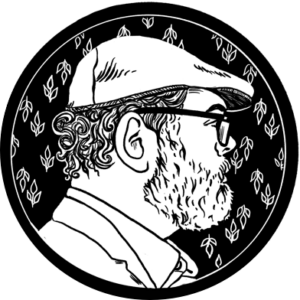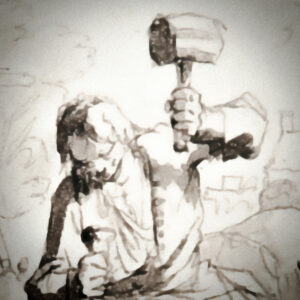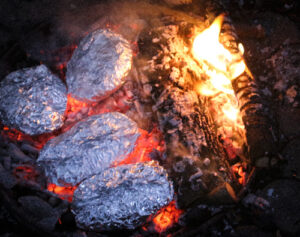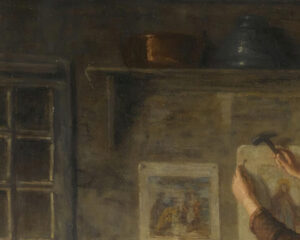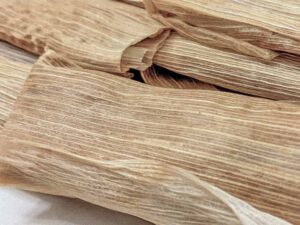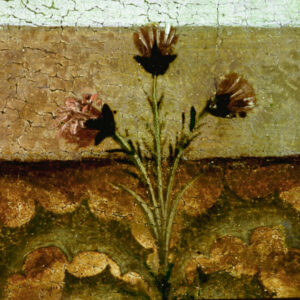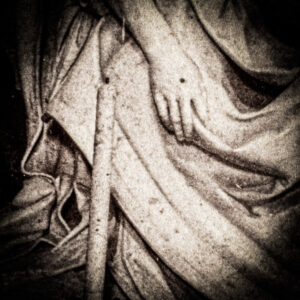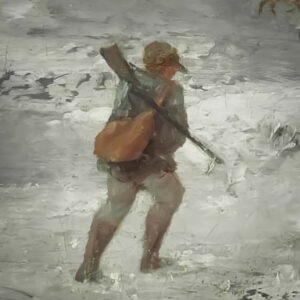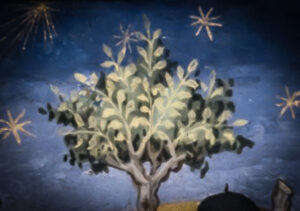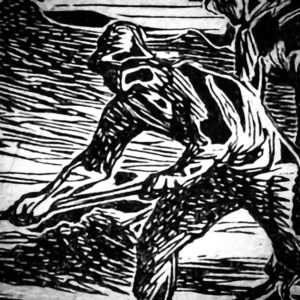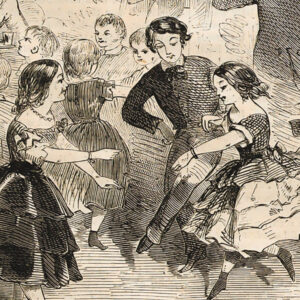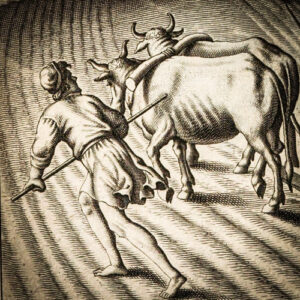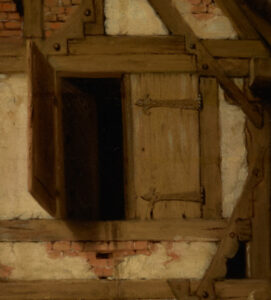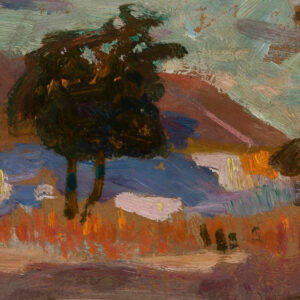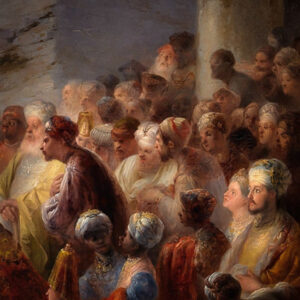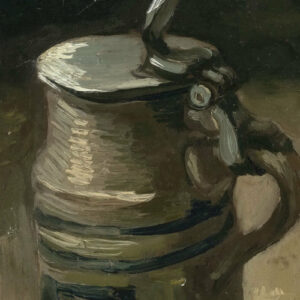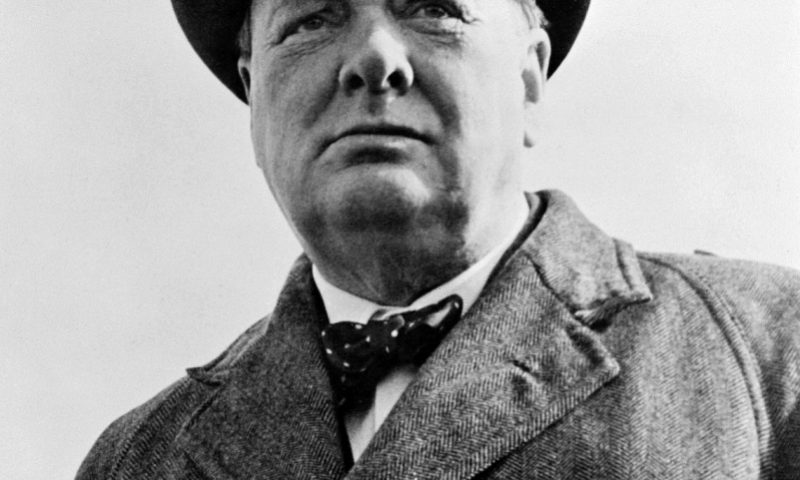
Becoming Human Again

I recently had the good fortune of meeting one of planet earth’s newest inhabitants, a beautiful baby boy named Ulric. Ulric is the second child and first son of two of my good friends. He is, according to his mother, “the best baby of all the babies,” and, by the looks of him, I think she may be right.
I say this because when I popped over to their house with a postpartum meal, I spied, resting upon the boy’s little shoulders, the most beautifully-shaped noggin my eyes had ever seen. It was a rosy sphere of Euclidean perfection. Two dainty ears, perched like perfect pink butterflies on opposite sides of his well-formed cranium, parenthesized his serene face. Long-lashed lids covered the globes of his sleeping eyes while his tiny nose twitched above petite, pursed lips. Here was a babe who appeared to debunk the Churchill Rule that states every human child, irrespective of race, religion, or social standing, enters the world disguised as a diminutive Winston Churchill, the wispy-haired, bulldog-faced, former Prime Minister of Great Britain.
I knew at a glance that Ulric had not come into the world via the normal channels. His mother confirmed that he had in fact been delivered by C-section. I was willing to accept that Ulric was indeed the best baby of all the babies based entirely on his appearance. I should have known better. Babies are crafty creatures. They make the tops of their heads smell like heaven to trick us into believing that they are cherubs. Their other end has a redolence of its own that betrays the true predicament of their species. I mean, of course, that babies are born upside down.
Members of a Fallen Race
If what a third of the people on our planet believes about the human condition is true, every child who enters the world is a member of a fallen race. (There are some notable exceptions.) Some people object to this assertion. As the Catholic apologist and soapbox orator Frank Sheed puts it, they think it’s unfair that Adam and Eve should eat the Apple while we get the tummy ache.
But those of us who believe in the doctrine of original sin don’t blame babies for the Fall anymore than we blame a poor child for growing up destitute after its prodigal great-grandfather frittered away the family fortune decades before he was born. Original sin doesn’t mean children are responsible for their predecessors’ actions, but it does mean that they suffer the consequences.
The English writer and lay theologian G.K. Chesterton once claimed that original sin is “the only part of Christian theology which can really be proved.” Anyone who disagrees with this has obviously never been on Twitter. Or been promoted to the grown-ups’ table at Thanksgiving. Or spent more than three minutes watching the news in 2020. One can deny the Fall of Man or dismiss it out of hand as an out-dated, unenlightened dogma, but which is harder to believe: that humanity is fallen or that all seven billion of us were immaculately conceived? That’s supposed to be a rhetorical question, but many of us were brought up believing that — at least for Americans — both of these narratives could be true. As a Catholic whose father was a patriotic American military man, I know I was.
Competing Narratives
Growing up, I took many things for granted that contradicted the religious doctrines to which I had given my assent. My Faith informed me that Adam and Eve’s original act of disobedience broke the universe and opened an impassable chasm between Man and his Maker. It taught that our first parents’ prideful attempt to rise above their station led to their downfall and the loss of perfect happiness.
My country claimed something different. It claimed that nothing was impossible for the self-reliant, self-made American. It stated as irrefutable fact that I lived in the most exceptional nation in the history of the world. Nothing was so broken that American ingenuity couldn’t fix it. Here, progress was inevitable; failure, inexcusable. Pulling oneself up by one’s bootstraps was a duty and an expectation in America. Rising above one’s station wasn’t the road to perdition; it was tradition. It wasn’t the way to lose happiness, but the means of finding it.
I have strong reservations about one of these narratives now. I’ve eaten too many Thanksgiving dinners to doubt the first, but I haven’t grown completely cynical about all aspects of the second yet. My current opinion of the land of my birth parallels that of the previously mentioned Prime Minister of Britain’s opinion of democracy as a form of government: I believe the United States to be the worst country humanity has come up with so far except for all the others. Especially on parchment, the United States remains noble and inspiring, but it is far from perfect and, unfortunately, seems to be trending downward.
Something Different?
My sense of humanity’s (and my own) fallenness has been steadily increasing over the past several years, but I have never felt it more acutely than during these last few months of pandemic-induced, global cabin fever. Something feels different. An argument I got into with my two oldest daughters recently brought this home to me.
My girls were having a passionate discussion about what everyone in America was discussing passionately this summer when I overheard one of them use a logical fallacy. In what I intended to be a spirit of paternal correction, I shoehorned myself into their conversation and attempted to explain the importance of defining one’s terms correctly when making an argument. I was taken aback when my comments were met with surprising hostility, especially considering I hadn’t disagreed with them. I was only trying to teach them how to fight fair.
At this, I failed spectacularly.
The reason I failed–and the thing that left me most disturbed about the incident–wasn’t my daughters’ alarming animosity, but my ferocious response to it. I entered the conversation as a mild-mannered Dr. Jekyll, but left as a rampaging Mr. Hyde. I’m still trying to repair the damage I did.
The dustup with my daughters left me utterly bewildered. It took me several very long weeks to process everything and begin to make sense of what went down. The incident caused me to consider my relationship with my own parents. I don’t recall ever treating them as rudely as I felt my kids had treated me. Surely, I must have at some point, but if I had, I forgot about it long ago. What I do remember is that my parents never gave me a reason to fear them. Not once did they get as rabid with me as I had been towards my daughters. What was going on?
Lost
Everywhere I look, I see people reacting similarly to the undeniable fact that humanity is broken. They react (and overreact) in ways that reveal they have abandoned all hope — human or divine — of it ever being fixed. They have lost faith in both God and man.
Many religious people seem to have concluded that the Church, the State, and the heart of man, are irredeemably corrupt. They can’t bring themselves to believe that the world can (or should) be pulled out of its nosedive, so they simply brace for impact.
Meanwhile, secular society has grown so cynical about its institutions that, in addition to rejecting the possibility of recovering happiness in a restored relationship with a good God, it dismisses the possibility of happiness coming from an ever-improving, self-sufficient humanity. All the narratives have been rejected.
Left without a story, we’ve been set adrift. We don’t know who we are or what our place in the cosmos is. We no longer act like civilized people who treat one another with respect and who settle their disputes like ladies and gentlemen. Instead, we lash out like cornered animals any time we perceive a threat. We are beastly to each other. We behave in ways that are less than human.
The problem with behaving like — and treating others as if they were no more than — animals, is that, when we fail to respect the humanity of others, we kill it in ourselves. If we desire a more civilized, more humane society, this is not the way to bring it about. If everyone were to follow this course of action, it would set the human race back even further than Adam and Eve. We would revert to being effectively mere beasts. It would be a kind of second fall — not from divine grace, but from human nature.
Getting Right-Side Up
This would be tragic because human beings are wonderful, even those of us who were born with elongated heads and puckered, prime ministerial faces. There is an art to being human, and we have forgotten it. We have forgotten there’s a whole lot more to our species than opposable thumbs. Michelangelo’s David, Bach’s St. Matthew’s Passion, Dante’s Divine Comedy, Chartres Cathedral, Pascal’s Wager, Einstein’s Theory of Relativity, Cubano sandwiches, The Princess Bride — all of these things give us reason to hope. We may have been born upside down, but we can still learn to walk erect.
If we want to preserve our humanity, we have to stop debasing ourselves and others. But, just as it doesn’t make sense to argue about the quickest route to an unspecified destination, there’s no point in trying to restore humanity if we don’t first know what makes it special. We can only do this if we know what it means to be human. And that is what we will be exploring in this column in Hearth & Field — I hope you come along for the adventure.

